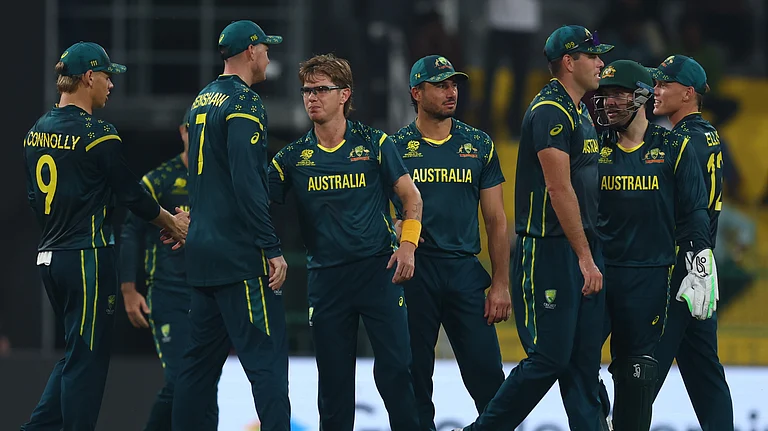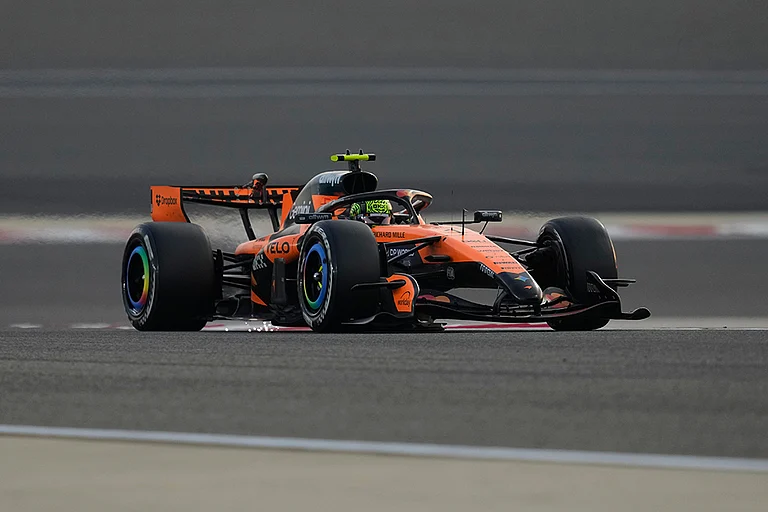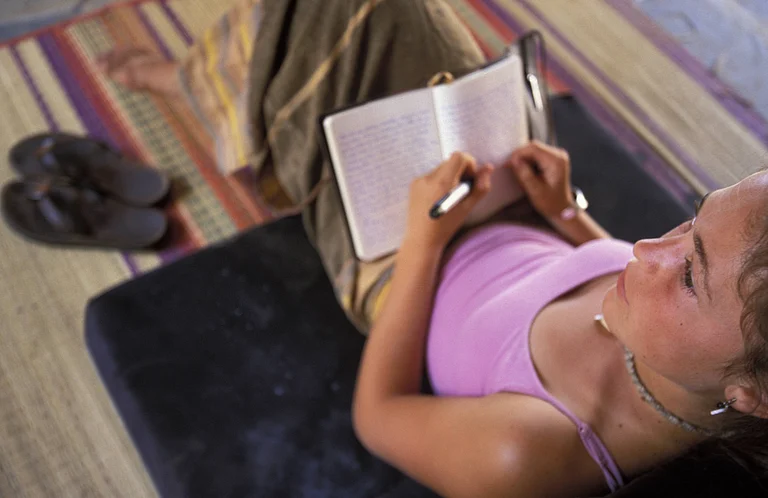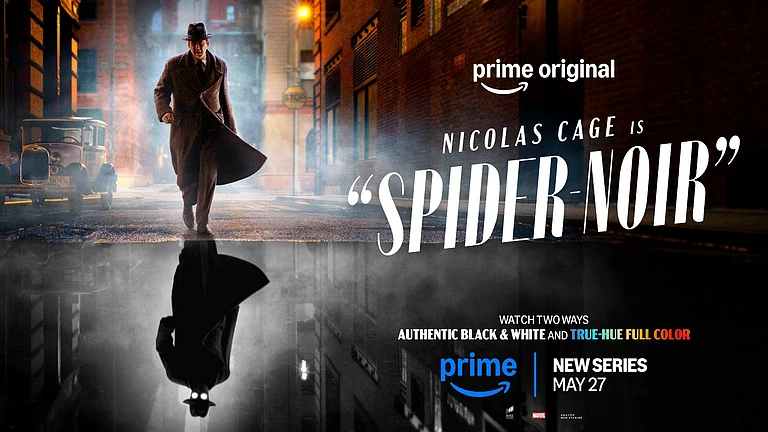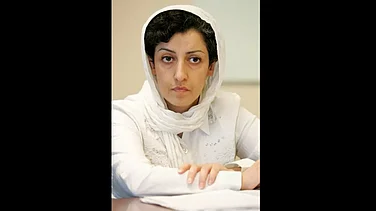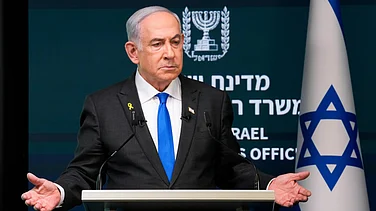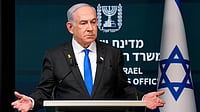Around 10 months after 22-year-old Mahsa Amini's death in Iran's morality police's custody triggered month of nationwide protests, the morality police personnel are back on the streets in a new campaign to enforce the Islamic dress code.
The protests raged on for months in which women participated in large numbers. Women often publicly tore off their Islamic head covering called hijabs, cut their hair publicly, and burnt their hijabs in defiance of the Iranian regime. The protests, however, largely died down earlier this year after severe crackdown by the Iranian authorities that saw over 500 protesters being killed and around 20,000 being detained.
Despite the protests dying down, several incidents of women going about their lives without hijabs and defying the Iranian dress code that requires women to wear hijabs publicly have surfaced.
Gen Saeed Montazerolmahdi, a police spokesman, on Sunday said the morality police would resume notifying and then detaining women not wearing hijab in public, reported the Associated Press, adding that in Tehran, the men and women of the morality police could be seen patrolling the streets in marked vans.
Hijab was imposed as a mandatory part of women's clothing by the Iranian regime after the Islamic Revolution of 1979. As per the Iranian dress code, women are required to wear cover their heads with hijab in public. They are also not supposed to wear tight, form-fitting clothing or one that's revealing. The mingling of men and women in public is also regulated. The Iranian regime does this in the name of a strict interpretation of Islamic law called Sharia.
These changes were introduced after 1979 when the hardline Islamic clergy overthrew the liberal, pro-Western Iranian monarchy. For decades under the Iranian monarchy until 1979, women were free to wear or not wear hijab. Photos from the period show women in skirts and swimsuits as well.
Al Jazeera cited Montazerolmahdi as saying that the morality police would "issue warnings and then introduce to the judicial system people who unfortunately insist on their norm-breaking behaviour without concern for the consequences of their covering that is outside of the norm".
The protests that began after Amini's death last year turned into the biggest challenge to the Iranian regime. Amini, an ethnic Kurd, was out with her brother when she was detained by the morality force for an alleged violation of the Islamic dress code. She later died from alleged custodial torture.
"The battle over the hijab became a powerful rallying cry last fall, with women playing a leading role in the protests. The demonstrations quickly escalated into calls for the overthrow of Iran's clerical rulers, whom the mostly young protesters accuse of being corrupt, repressive and out of touch. Iran's government blamed the protests on a foreign conspiracy, without providing evidence," reported AP.
Al Jazeera reported that the authorities have been deploying surveillance in recent months to crack down on defiance of the law. Over the past several months, several women have taken to going about their lives bare-headed in individual acts of dissent against the Iranian regime.
"Businesses have also been increasingly targeted, with many cafes, restaurants and even sprawling shopping centres facing closures for offering services to women with loose hijabs," reported Al Jazeera.
Besides thousands of common folk, several prominent Iranians, including actors and sportspersons, joined the protests and "Women, Life, Freedom" became the rallying call of their protests.
"Several Iranian actresses were detained after appearing in public without the hijab or expressing support for the protests. In the most recent case, actress Azadeh Samadi was barred from social media and ordered by a court to seek psychological treatment for 'antisocial personality disorder' after appearing at a funeral two months ago wearing a cap on her head," reported AP.
Earlier, several sportspersons had defined the hijab law or had expressed solidarity with the protesters.
Reuters reported that top Iranian chess player Sara Khadem had to move to Europe after competing in a tournament abroad without hijab.
Similarly, Iranian chess player Atousa Pourkashiyan also competed abroad without a hijab.
In October, Iranian competitive climber Elnaz Rekabi competed without a hijab in South Korea.
In November, an Iranian basketball team shared a photo without hijab with a caption “Women, Life, Freedom”.
In November, Iranian skater Niloufar Mardani received an award in Turkey without her hijab.
More recently, in February, Iranian singer Shervin Hajipour was awarded the Best Song For Social Change award at the 2023 Grammy Awards. He won the award for his song Baraye, which was listened by over 40 million people in less than two days, according to the Grammy website.
Hajipour's song Baraye became the unofficial anthem of the Iranian women-led protests following Amini's death in September last year. US First Lady Jill Biden announced the him as the winner. Announcing the award, she called the song "a powerful and poetic call for freedom and women's right".
She said, "This song became the anthem of Mahsa Amini protests, a powerful and poetic call for women's rights...Shervin was arrested but this song continues to resonate around the world with its powerful theme — women, life, freedom."
In May, Iranian-American model Mahlagha Jaberi in May wore a dress with a noose collar to the Cannes Film Festival to bring attention to executions in Iran.
In a post on Instagram, she said, "We wanted to make a fashion statement to observe the glamour of Cannes, but more importantly, to bring media attention to the wrongful executions of Iranian people. Unfortunately, political statements are not allowed at the film festival and the security stopped me from showing the back of my dress, but the 'noose' meaning was well understood."







